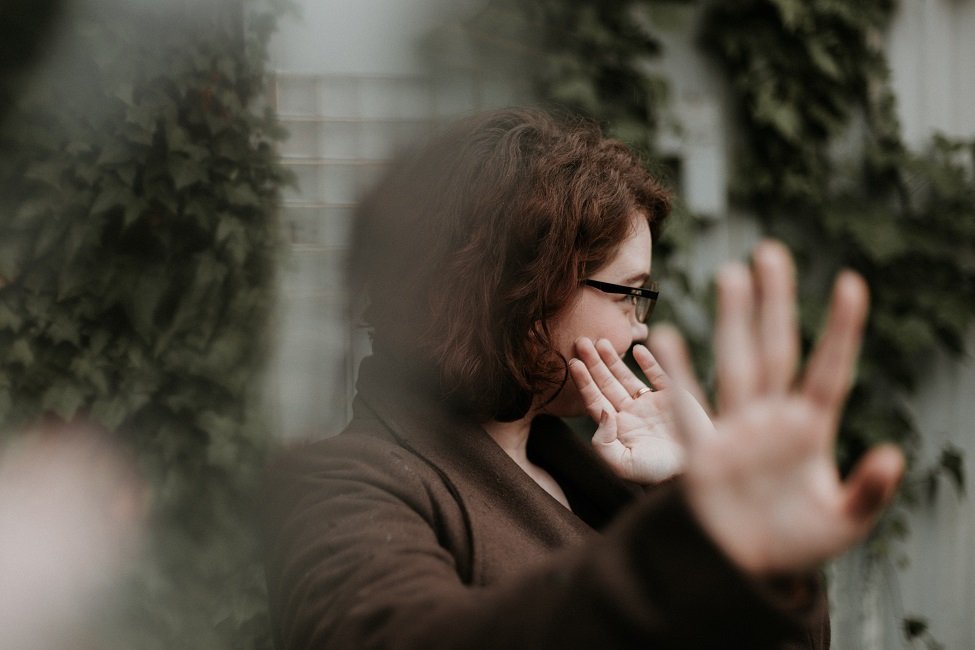Why we hide and how to express ourselves more fully
Photo by Priscilla Du Preez on Unsplash
The reasons why we hide vary from person to person, but most have their roots in a difficult past.
I read a story about a woman who decided to make herself invisible after her high school friend group suddenly ostracized her.
For others, the choice to stay small derives from a childhood pattern of abuse or neglect, when becoming invisible meant staying safe.
Long after these threats are over, however, we continue to shrink and lie about our true selves.
When we fail to express our thoughts, emotions and opinions, we withhold the truth about ourselves from others.
We deprive them of the chance to get to know us. We deprive ourselves of true intimacy and connection.
As a result, the reasons why we hide create a prison of loneliness and isolation, even when we're surrounded by so-called friends.
5 reasons why we hide
Here are 5 common reasons why we hide. And what to do instead.
1. Shame
You feel ashamed of what people will think if you express yourself fully. You fear being laughed at or told you're too big for your britches.
If people knew the real you, they wouldn't like you. So you show up as only half of yourself (if that) and hope they find you acceptable.
If you keep yourself small, you won't risk the pain of visibility which comes with possible criticism and rejection.
2. Fear of change
Hiding makes life comfortable and predictable, but prevents personal growth. If we never speak up for our needs or express what lights us up, we won't pursue anything different.
We tell ourselves everything is fine the way it is. And appease ourselves with gratitude journals.
We decide the risk is not worth the effort so we quash that voice inside us that says it wants more.
3. Avoidant attachment
Your emotional needs went unmet in childhood, which resulted in you developing an avoidant attachment style.
You understood that expressing emotions got you punished or ignored. So you learned to hide how you feel, which means hiding your true self.
In addition, it makes sure other people never know you. As a result, you never share intimacy or meaningful relationship with anyone.
4. Feeling unworthy
You fail to express your needs because deep down you feel you don't deserve to have them met. You have an inner critic that berates you. And you believe this accuser more than you believe God.
5. You've been traumatized
You've experienced trauma, and locked away the incident (or incidents) somewhere in the corner of your mind, and thrown away the key.
Opening the door to the trauma feels like it could kill you, so you refuse to look inside or let anyone else see it.
This act of compartmentalizing might be conscious or subconscious. But it keeps you mired in shame. And keeps others from knowing you and helping you.
How to begin to express yourself fully
1. Understand that hiding was a way to cope when you were a child with inadequate parents. But now you are grown and can make different choices. The world needs to hear your voice.
2. Remind yourself it's not your fault you've been encouraged to hide. When we have emotionally neglectful parents, we tend to gravitate to people who reinforce what we learned from them.
3. Start to look at your circle of support and ask if they are truly supportive. Do they want you to be all you can be? Or do they shut you down when you try to open up?
It's difficult, but seek out healthy people who will encourage you to bring your whole self to the table. Who won't reject you when you express emotions.
People who will mirror your excitement and affirm your exuberance, rather than shutting it down with a stone face or a criticism.
4. Practice feeling your feelings fully rather than minimizing them. Watch shows that make you cry and let the tears flow.
Feel your anger rather than suppressing it. That does not mean acting on it, but feeling it without guilt or shame.
Once you allow yourself to feel anger without the attendant guilt, you will see how quickly you process it - even in as little as 90 seconds.
5. There's a saying that what you fear has already happened. That means your traumatic past is dictating your present.
Though the risk of rejection still exists, you're an adult now and can handle it. The pain of rejection is far less intense than the pain of not living fully.
And the day came when the risk to remain tight in a bud was more painful than the risk it took to blossom.
Anais Nin


